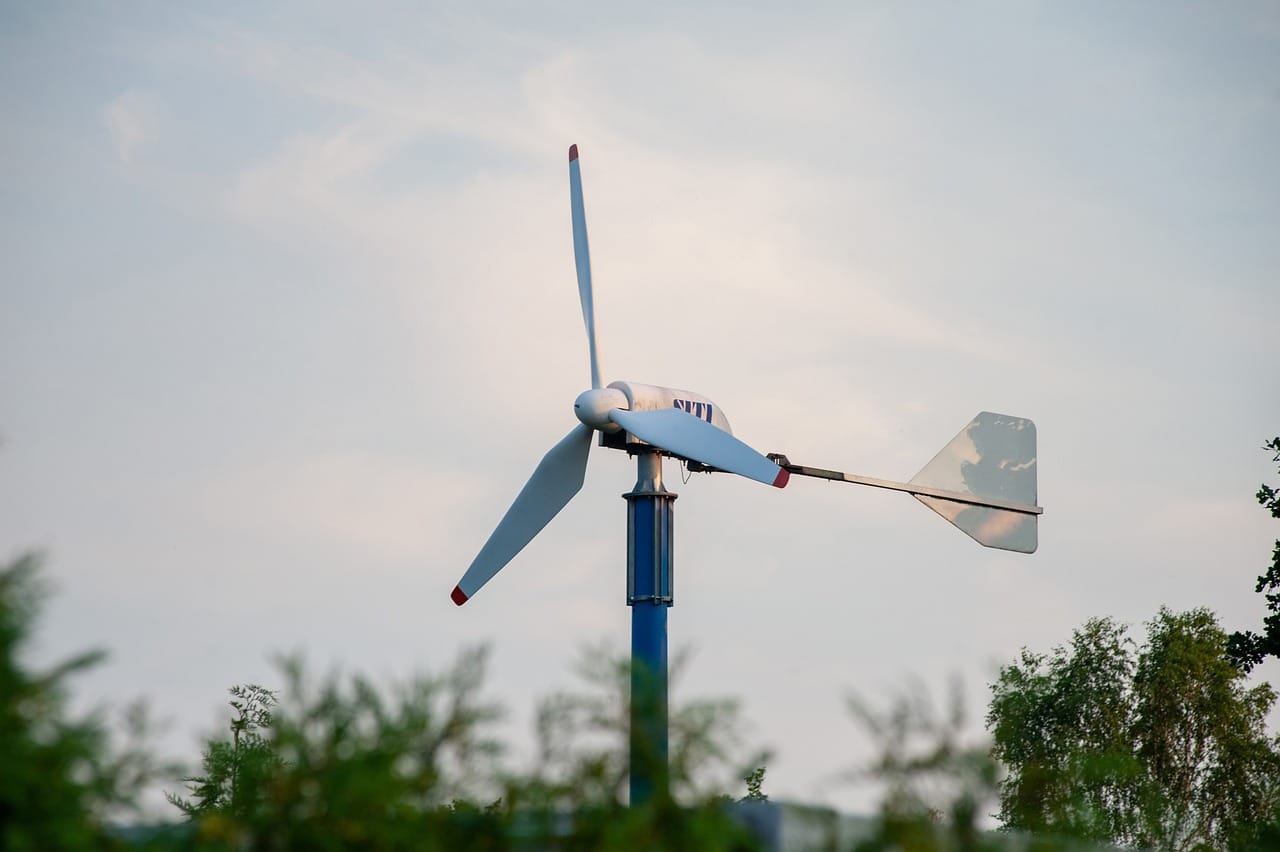The Energy Revolution | Transitioning to a Renewable Future
Explore the renewable energy revolution and its global impact. Learn about the importance of transitioning to clean energy, government policies, technological advancements, and investment opportunities for a sustainable future

The Energy Revolution | Transitioning to a Renewable Future
In today's world, the energy landscape is undergoing a significant shift as we move towards a more sustainable and renewable future. The transition to renewable energy sources is not only essential for combating climate change but also for ensuring a secure and reliable energy supply for future generations. In this article, I will explore the various facets of the energy revolution, the importance of transitioning to renewable energy, the statistics and trends shaping this transition, government policies and incentives driving the shift, the advantages and challenges associated with renewable energy sources, the role of technology in this revolution, investment opportunities, and renewable energy solutions for businesses and households.
Understanding the Energy Revolution
The energy revolution signifies a paradigm shift in the way we produce and consume energy. It involves moving away from traditional fossil fuel-based sources such as coal, oil, and natural gas, towards harnessing the power of renewable resources like sunlight, wind, water, and geothermal heat. This transition is driven by the need to reduce greenhouse gas emissions, mitigate the impacts of climate change, and create a more sustainable energy system.
As the global population continues to grow, the demand for energy is also on the rise. Traditional energy sources are finite and contribute to environmental degradation, making it imperative to embrace renewable energy solutions. The energy revolution represents a fundamental change in our approach to energy production and consumption, and it is essential for securing a cleaner and more sustainable future.
Understanding the energy revolution and its implications is crucial for individuals, businesses, and policymakers alike. By recognizing the need for this shift and the opportunities it presents, we can collectively work towards a more sustainable and resilient energy future.
Importance of Transitioning to Renewable Energy
The importance of transitioning to renewable energy cannot be overstated. Fossil fuel-based energy sources are not only finite but also contribute significantly to air and water pollution, deforestation, and climate change. Embracing renewable energy is a crucial step towards reducing greenhouse gas emissions and mitigating the impacts of global warming.
Renewable energy sources are abundant, widely distributed, and inexhaustible, making them a reliable and sustainable option for meeting our energy needs. By harnessing renewable resources, we can reduce our reliance on imported fossil fuels, enhance energy security, and create new economic opportunities in the clean energy sector.
Furthermore, transitioning to renewable energy can lead to improved public health outcomes by reducing air and water pollution associated with traditional energy sources. This shift also has the potential to create jobs, drive innovation, and promote energy independence. Embracing renewable energy is not just an environmental imperative but also a strategic and economic necessity for a sustainable future.
Renewable Energy Statistics and Trends
The global transition to renewable energy is gaining momentum, with significant progress being made in the deployment of clean energy technologies. According to the International Energy Agency (IEA), renewable energy sources accounted for nearly 26% of global electricity generation in 2018, and this share is expected to rise to 30% by 2024.
Solar and wind energy are among the fastest-growing renewable energy sources, with substantial investments being made in utility-scale solar and wind projects around the world. The declining costs of solar photovoltaic (PV) panels and wind turbines have contributed to the widespread adoption of these technologies, making renewable energy increasingly competitive with traditional fossil fuel-based generation.
In addition to electricity generation, renewable energy is also making inroads in the transportation and heating sectors. The electrification of vehicles, coupled with the use of biofuels and renewable natural gas, is helping to reduce the carbon footprint of the transportation industry. Similarly, the integration of solar thermal and geothermal energy systems is providing sustainable heating solutions for residential and commercial buildings.
These statistics and trends underscore the growing significance of renewable energy in the global energy mix and highlight the potential for further expansion and innovation in the clean energy sector.
Government Policies and Incentives for Renewable Energy
Governments around the world are playing a pivotal role in driving the transition to renewable energy through supportive policies, incentives, and regulatory frameworks. In an effort to meet climate targets and reduce carbon emissions, many countries have implemented renewable energy targets, feed-in tariffs, tax credits, and other financial incentives to promote the development and deployment of clean energy technologies.

For instance, the European Union has set a target of achieving 32% renewable energy in its total energy mix by 2030, while individual member states have established their own specific goals and policies to support renewable energy deployment. In the United States, the federal Investment Tax Credit (ITC) and Production Tax Credit (PTC) have been instrumental in driving investment in solar, wind, and other renewable energy projects.
Furthermore, regulatory measures such as renewable portfolio standards (RPS) and carbon pricing mechanisms are incentivizing utilities and energy companies to invest in renewable energy generation and integrate clean energy into their portfolios. These policies not only create a conducive environment for renewable energy investments but also help to level the playing field between clean energy and conventional fossil fuel-based generation.
The role of government policies and incentives in promoting renewable energy cannot be overstated, as they provide the necessary support and market signals for businesses and investors to transition towards a more sustainable and low-carbon energy future.
Advantages of Renewable Energy Sources
Renewable energy sources offer a multitude of advantages that make them an attractive alternative to traditional fossil fuels. One of the primary benefits of renewable energy is its environmental sustainability. Unlike fossil fuels, renewable resources such as sunlight, wind, and water are abundant and do not produce harmful emissions when harnessed for energy generation.
Another advantage of renewable energy is its potential for decentralization and energy independence. Distributed generation through rooftop solar panels, small wind turbines, and micro-hydropower systems enables individuals and communities to produce their own clean energy and reduce their reliance on centralized power grids.
Furthermore, renewable energy technologies offer long-term cost savings and price stability. Once installed, solar panels, wind turbines, and other renewable energy systems have minimal operating costs and can provide a consistent and predictable energy supply, insulating consumers from volatile fuel prices and market fluctuations.
Renewable energy also has the potential to create new economic opportunities and jobs in manufacturing, installation, maintenance, and research and development. The growth of the clean energy sector can stimulate local economies, attract investment, and drive innovation in emerging technologies, contributing to overall economic growth and resilience.
Challenges in Transitioning to a Renewable Future
While the benefits of renewable energy are compelling, the transition towards a renewable future is not without its challenges. One of the primary obstacles is the intermittency and variability of renewable resources. Solar and wind energy, for example, are dependent on weather conditions and time of day, which can lead to fluctuations in energy output and require effective storage and grid integration solutions.
The integration of renewable energy into existing power systems and infrastructure also poses technical and logistical challenges. Grid modernization, energy storage technologies, and flexible demand-side management are essential for accommodating higher levels of variable renewable energy and ensuring grid stability and reliability.
Moreover, the upfront costs of renewable energy technologies, such as solar panels and wind turbines, can be a barrier to widespread adoption, particularly for individuals and businesses with limited financial resources. Access to affordable financing, incentives, and supportive policies is crucial for overcoming this barrier and making renewable energy more accessible and affordable for all.
Another challenge in transitioning to a renewable future is the need for skilled labor and workforce development in the clean energy sector. As the demand for renewable energy technologies and services grows, there is a critical need for training and education programs to equip workers with the necessary skills and knowledge to support the industry's expansion.
Addressing these challenges requires a coordinated effort from policymakers, industry stakeholders, and the broader community to drive innovation, investment, and collaboration in advancing renewable energy solutions.
The Role of Technology in the Energy Revolution
Technology plays a pivotal role in driving the energy revolution by enabling the development and deployment of innovative renewable energy solutions. Advancements in solar photovoltaic (PV) and wind turbine technologies have led to significant cost reductions and efficiency improvements, making these technologies increasingly competitive with conventional energy sources.

Energy storage technologies, such as batteries and pumped hydro storage, are crucial for overcoming the intermittency of renewable resources and ensuring a reliable and resilient energy supply. Smart grid technologies, digitalization, and advanced control systems are also essential for integrating renewable energy into existing power grids and optimizing energy management and distribution.
In addition, emerging technologies such as floating solar, tidal and wave energy, and advanced bioenergy solutions are expanding the range of renewable energy options available, further diversifying the clean energy portfolio and enhancing overall energy security and sustainability.
Moreover, digital innovation and data analytics are driving the development of energy management systems, energy efficiency solutions, and demand response technologies, enabling consumers to optimize their energy use, reduce waste, and contribute to a more efficient and sustainable energy system.
The continued advancement of technology is instrumental in overcoming the technical, economic, and operational challenges associated with the energy transition, and it is essential for unlocking the full potential of renewable energy in powering tomorrow's world.
Investing in Renewable Energy
Investing in renewable energy presents a compelling opportunity for individuals, institutions, and businesses seeking to align their financial interests with environmental and social impact objectives. The global shift towards renewable energy is driving significant investment in clean energy projects, infrastructure, and technologies, creating diverse opportunities for investors across the spectrum.
Renewable energy investments can take various forms, including project finance, equity and debt investments in renewable energy companies, green bonds, and sustainable infrastructure funds. Institutional investors, such as pension funds, sovereign wealth funds, and asset managers, are increasingly allocating capital to renewable energy assets as part of their long-term investment strategies.
Individual investors can also participate in the clean energy transition through crowdfunding platforms, community solar projects, and peer-to-peer lending initiatives, contributing to the expansion of renewable energy deployment at a local level.
Furthermore, the growing demand for renewable energy and the declining costs of clean energy technologies have made renewable energy investments increasingly attractive from a financial standpoint. The potential for stable, long-term returns, coupled with the positive environmental and social impact of clean energy investments, positions renewable energy as a compelling asset class for both institutional and retail investors.
Renewable Energy Solutions for Businesses and Households
Businesses and households play a critical role in the transition to a renewable energy future, and there are various solutions and opportunities available for them to embrace clean energy and contribute to sustainability and resilience.
For businesses, integrating renewable energy into operations can lead to cost savings, enhanced corporate social responsibility, and improved energy security. Installing solar panels, implementing energy efficiency measures, and procuring renewable energy through power purchase agreements (PPAs) or green tariffs are effective strategies for businesses to reduce their carbon footprint and demonstrate environmental leadership.
In addition, businesses can leverage renewable energy technologies and services to diversify their energy supply, hedge against energy price volatility, and differentiate their products and services in the market. The adoption of electric vehicles, energy management systems, and onsite renewable energy generation can further enhance the sustainability and competitiveness of businesses across various sectors.
For households, investing in rooftop solar panels, energy-efficient appliances, and home energy storage systems can lead to reduced energy bills, increased energy independence, and a lower environmental impact. Community solar programs, energy conservation initiatives, and smart home technologies offer additional opportunities for households to contribute to the renewable energy transition and benefit from clean and affordable energy solutions.
By embracing renewable energy solutions, businesses and households can play a proactive role in shaping a more sustainable and resilient energy future while realizing economic and environmental benefits.
The energy revolution represents a transformative shift towards a more sustainable, resilient, and low-carbon energy future. The importance of transitioning to renewable energy is underscored by the environmental, economic, and social imperatives driving this global transition. Renewable energy statistics and trends indicate the rapid growth and increasing competitiveness of clean energy technologies, while government policies and incentives are instrumental in supporting the expansion of renewable energy deployment.
Despite the advantages of renewable energy sources, the transition to a renewable future presents challenges that require innovative solutions and collaborative efforts from stakeholders across the energy spectrum. Technology plays a crucial role in enabling the energy revolution and unlocking the full potential of renewable energy in powering tomorrow's world.
Investing in renewable energy presents diverse opportunities for individuals and institutions seeking to align their financial interests with environmental and social impact objectives, while renewable energy solutions for businesses and households offer practical pathways for embracing clean energy and contributing to sustainability and resilience.
As we navigate the complexities and opportunities of the energy revolution, it is imperative for individuals, businesses, and policymakers to recognize the significance of transitioning to renewable energy and work towards a collective vision of a cleaner, more sustainable energy future for generations to come.
If you are interested in learning more about the renewable energy revolution and how you can contribute to a sustainable future, I encourage you to explore the diverse opportunities and resources available for embracing clean energy solutions in your personal and professional endeavors. Together, we can power tomorrow with renewable energy and create a brighter, more sustainable world for all.




